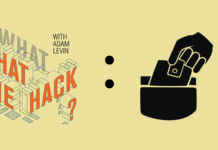 Earlier this week, the Centers for Disease Control issued a travel warning, urging pregnant women and their partners not to travel to a small community north of downtown Miami, where the Zika Virus is spreading. But while health officials work to contain the outbreak, a group of alleged scammers appear to have cropped up to prey on people’s fears.
Earlier this week, the Centers for Disease Control issued a travel warning, urging pregnant women and their partners not to travel to a small community north of downtown Miami, where the Zika Virus is spreading. But while health officials work to contain the outbreak, a group of alleged scammers appear to have cropped up to prey on people’s fears.
On Wednesday, the New York Attorney General issued cease-and-desist letters to seven companies marketing products that claim to protect against Zika. Two of these include tiny wristbands and ultrasonic devices.
Bug-repellent wristbands, like MosQuiTo Repellent Bracelet Wristband Band and Neor Mosquito Repellent Bracelet, claim to create a forcefield around the user, but contain no EPA-registered insect repellents with at least one of the five CDC-recommended active ingredients, the office of New York Attorney General Eric Schneiderman said in a press release.
Meanwhile, ultrasonic devices, like the STAR Ultrasonic Pest Repeller, which claim to emit high frequency sounds similar to those of a dog whistle, are said to be equally pointless. In fact, they may even attract mosquitoes, the New York Attorney General said.
Credit.com attempted to reach out to the companies mentioned above as well as the others listed in Schneiderman’s press release. However, their contact information was not readily available and many of their online product listings had been taken down or were not working as of press time.
“Consumers should also be aware that there is no cure for the Zika virus as of this date, and products claiming to be cures are deceptive,” Schneiderman’s office said. To protect against Zika, the CDC recommends people avoid travel in areas with active mosquito-borne transmission of the virus. If you must travel to these areas, it recommends people wear pants and long sleeves; stay in places with air conditioning, door and window screens; sleep under mosquito bed nets; and treat clothes with permethrin or purchase pre-treated clothing.
Save Your Money
Whenever an outbreak or national scare occurs, there are usually scammers looking to capitalize on it. Do your research and don’t fall for their tricks. If it sounds too good to be true, it probably is. Consumer protection bureaus have likely reported on it as well.
And, if you believe you’ve been the victim of a scam where your personal information was compromised, it’s a good idea to keep an eye on your credit for signs of deeper identity theft. You can do so by pulling your credit reports for free each year at AnnualCreditReport.com and getting a free summary of your credit report, updated each month, by visiting Credit.com.
This article originally appeared on Credit.com and was written by Jill Krasny.










